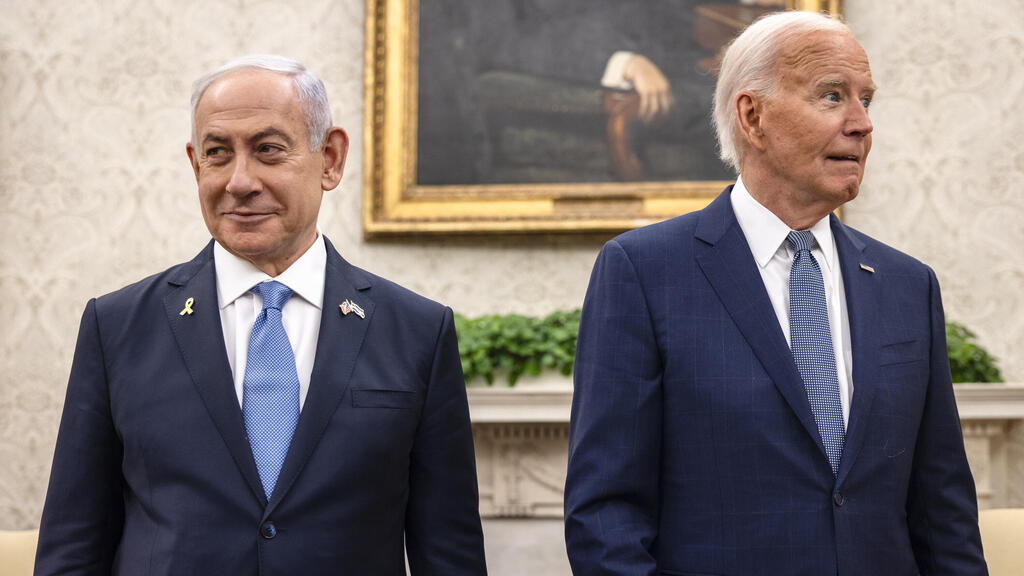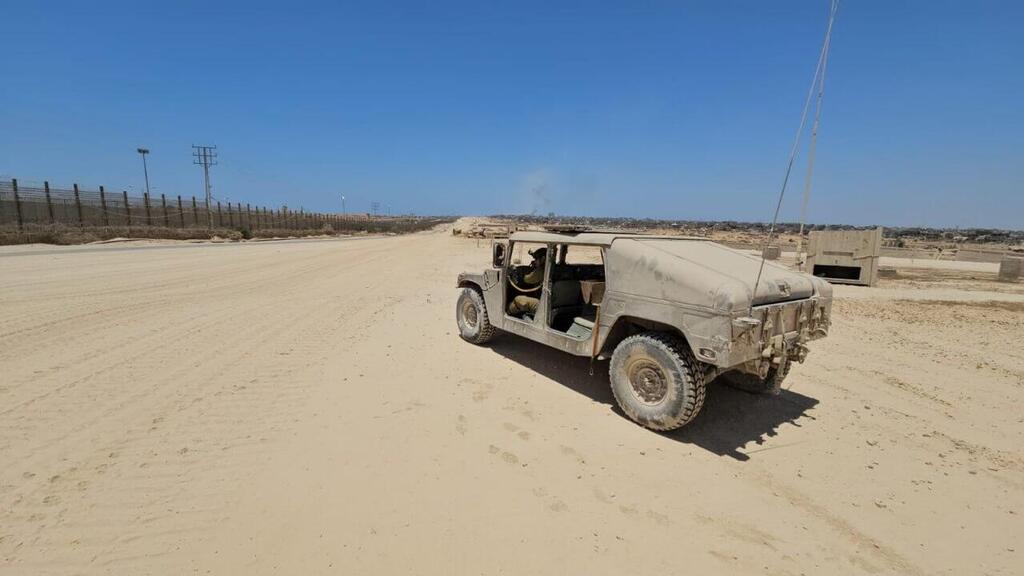Getting your Trinity Audio player ready...
U.S. officials have been waiting for four days to receive basic answers from Hamas regarding negotiations for a hostage deal, The Washington Post reported Thursday, hours after the call between U.S. President Joe Biden and Prime Minister Benjamin Netanyahu.
According to the report, Netanyahu offered "several concessions" during the conversation, including presenting a map detailing the deployment of IDF forces along the Philadelphi Corridor, for which American officials praised him.
3 View gallery


Hezbollah leader Hassan Nasrallah, Hamas leader Yahya Sinwar, Iran's Supreme Leader Ali Khamenei
(Photo: AFP / HO / KHAMENEI.IR / EPA)
However, the other side has been less willing to cooperate, with no responses to questions such as the identity of the hostages to be released in the deal. U.S. officials indicated the terror organization remains largely silent regarding the negotiations taking place in Doha and Cairo.
Washington believes Hamas leader Yahya Sinwar, who became the head of the organization's poiltical bureau after Ismail Haniyeh was assassinated in Tehran, is interested in a deal but is playing a "waiting game," likely hoping that Iran or Hezbollah will attack Israel and turn the conflict into a regional war. However, according to the report, Tehran will disappoint Sinwar.
American officials believe Iran's leaders have decided to postpone their retaliation for Haniyeh's assassination at the end of last month. According to The Washington Post, Iran appears to have been deterred by the U.S. show of force in the Middle East. However, the U.S. is concerned that, while Tehran has decided to delay its attack, it is encouraging its proxy Hezbollah to strike.
According to the report, the Americans believe that Hezbollah leader Hassan Nasrallah may back away from the plan to fire a barrage of rockets toward central Israel, which could lead to a major escalation. However, they noted Nasrallah has sworn to avenge the assassination of Fuad Shukr, Hezbollah's military Chief of Staff, and has many Israeli targets to choose from.
3 View gallery


Prime Minister Benjamin Netanyahu and U.S President Joe Biden
(Photo: EPA/SAMUEL CORUM / POOL)
Following Netanyahu and Biden’s talk, the White House issued a readout of Wednesday's telephone conversation. According to the readout, the two leaders "discussed active and ongoing U.S. efforts to support Israel’s defense against all threats from Iran, including its proxy terrorist groups Hamas, Hezbollah, and the Houthis, to include ongoing defensive U.S. military deployments."
The White House said that Biden "stressed the urgency of bringing the cease-fire and hostage release deal to closure and discussed upcoming talks in Cairo to remove any remaining obstacles."
The aim of the call, according to observers, was to persuade Netanyahu to soften his stance on the deployment of forces in the Philadelphi Corridor. Biden is working to convince the prime minister to be flexible with regard to his demands regarding the corridor, while Netanyahu insists on maintaining the presence of the IDF there; the U.S. is demanding a significant drawdown of the forces during the first phase of the deal, and a complete withdrawal in phase two.
To bolster these efforts, Biden has dispatched Brett McGurk, his special envoy to the Middle East, to Cairo, in hopes of laying the groundwork for the summit and resolving the contentious Philadelphi issue.
Hamas, according to The Washington Post, isn’t cooperating with the Americans nor with the mediators. This might be part of the so-called "waiting game." After a meeting between Hamas and Islamic Jihad representatives held in Doha on Wednesday, the two terrorist organizations issued a joint statement blaming Israel for "the collapse of the mediators' efforts."
"The occupying forces’ leaders are responsible for the collapse of the mediators' efforts by insisting on continuing the aggression and denying what was agreed upon in previous stages, particularly the proposal the movement agreed to on July 2,” the statement said.
A summit in Cairo, should it take place, might convene on Friday or Saturday but won't start on Thursday. Sources familiar with the details said the chances of a deal are slim at the moment, and if a summit does happen, the likelihood of it ending with an agreement is very low.
The U.S. Special Envoy to the Middle East, Brett McGurk, was sent to Cairo to prepare for the summit and attempt to resolve the Philadelphi Corridor issue.



